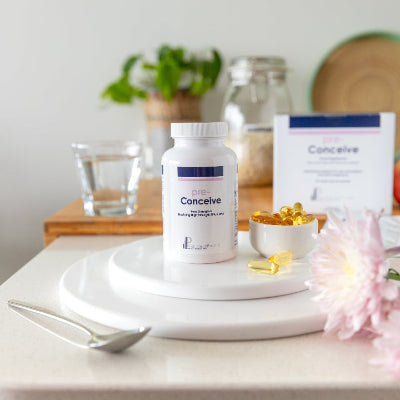The microbiome, the trillions of bacteria, fungi, and other microorganisms living in and on our bodies, plays a vital role in immune function, inflammation, and yes, fertility.
The Vaginal Microbiome
In women, the vaginal microbiome is dominated by Lactobacillus species, which help maintain an acidic pH and protect against infections. A healthy vaginal microbiome is linked to:
- Reduced risk of bacterial vaginosis (BV)
- Increased implantation and pregnancy rates in IVF
- Lower rates of miscarriage and preterm birth
Disruption of this microbiome can lead to:
- Vaginal infections
- Chronic inflammation
- Endometrial microbiota imbalances that may impact implantation
The Gut Microbiome
The gut microbiome influences reproductive health through its impact on:
- Hormone metabolism: Gut bacteria help process oestrogen; imbalances can lead to oestrogen dominance or deficiency
- Immune modulation: A balanced gut microbiome reduces systemic inflammation, which is key for implantation and pregnancy maintenance
- Nutrient absorption: Vitamins like B12, folate, and K2 (crucial for fertility) depend on a healthy gut
The Seminal Microbiome
Yes, men have a reproductive microbiome too. Research suggests that a diverse and balanced seminal microbiome is associated with:
- Improved sperm motility
- Reduced oxidative stress in seminal fluid
- Lower DNA fragmentation in sperm
Tips to Support Your Microbiome:
- Eat a diverse, fibre-rich diet with prebiotic foods (garlic, leeks, onions, bananas)
- Include probiotic-rich foods like yogurt, kefir, sauerkraut, and miso
- Avoid unnecessary antibiotics and processed foods
- Consider targeted probiotic supplements for vaginal or gut health
Conclusion: Microbiome and Fertility
The reproductive system doesn’t operate in isolation, it’s intimately linked with the microbial communities that support and protect it. A healthy microbiome enhances fertility through improved hormone metabolism, reduced inflammation, and better reproductive tissue health. Supporting your microbiome is not just about digestion; it’s an essential strategy for anyone trying to conceive naturally or through assisted reproductive techniques.






